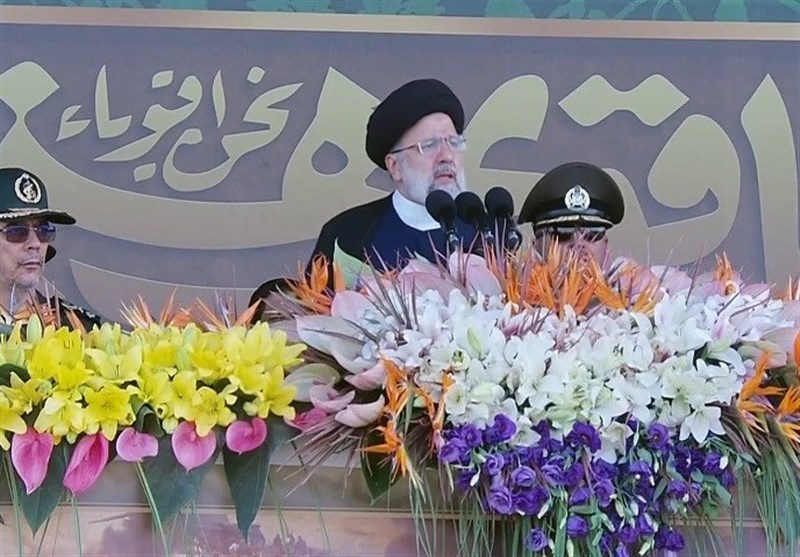TEHRAN (Tasnim) – The Iranian Armed Forces launched extensive military parades across the country on Friday to observe Sacred Defense Week.
“The Sacred Defense Week, which starts today, marks eight years of the Iraqi imposed war on Iran in the 1980s,” announced President Ebrahim Raisi.
In remembrance of the 1980-88 Iraq-imposed war, the Iranian Armed Forces organized military parades both within the country and in the Persian Gulf waters.
The parades commenced at the mausoleum of Imam Khomeini, the late founder of the Islamic Republic, in southern Tehran on Friday morning, symbolizing the start of the war initiated by former Iraqi dictator Saddam Hussein against Iran 43 years ago.
Similar parades were conducted in various Iranian provinces to honor this event. The parades featured participation from the Iranian Army, Islamic Revolution Guards Corps (IRGC), Police, Border Guards, and Basij forces.
The annual parade traditionally showcases the latest military products, including various missiles and drones. One of the highlights of this year’s parade in Tehran was the exhibition of two significant Iranian missiles: Fattah and Paveh.
Fattah, which literally translates to “the opener,” is a precision-guided two-stage solid-fueled rocket boasting a range of 1,400 km and a terminal speed of Mach 13 to 15. Its exceptional speed, combined with movable nozzles enabling maneuverability both within and outside Earth’s atmosphere, renders it impervious to interception by existing anti-missile systems.
Paveh, on the other hand, is a newly developed long-range cruise missile with a maximum travel distance of 1,650 kilometers (1,025 miles).
President Ebrahim Raisi, addressing the parade in Tehran, praised Iran’s defense accomplishments and its capacity for weapons production. He emphasized how these achievements demonstrated how the nation’s armed forces had transformed sanctions into opportunities for growth.
“We have transformed from a country that imported and stored other countries’ weapons to a country that produces and exports weapons,” stated President Raisi, underscoring Iran’s enhanced military capability, particularly in terms of training and equipment, recognized both regionally and globally.
President Raisi made clear that Iran’s military strength was primarily defensive in nature, with no intention to engage in wars with other nations. He emphasized that a defensive approach aimed at ensuring sustainable security and deterrence was a fundamental policy.
Prioritizing regional cooperation, President Raisi stressed the importance of collaboration with neighboring countries in defense, trade, technology, and other domains. He called for regional nations to work together to eliminate the presence of foreign forces in the Persian Gulf region, asserting that foreign military presence exacerbated regional issues rather than resolving them.
President Raisi also commended Iraq’s recent decision to relocate armed anti-Iran groups away from areas near the Iran-Iraq border, pledging that Iran would prevent any separatist group from possessing weapons and causing unrest near its borders.
Regarding Israel’s normalization agreements with several Arab countries, President Raisi expressed skepticism, asserting that true normalization was unattainable due to widespread opposition to the regime within the Muslim world and among other nations.
He condemned these normalization deals as a “stab in the back of Palestinians” and emphasized that the Palestinian issue could not be resolved through such agreements. President Raisi reiterated Iran’s proposal for a referendum on the fate of Palestinian lands, involving all the original inhabitants of those lands.



